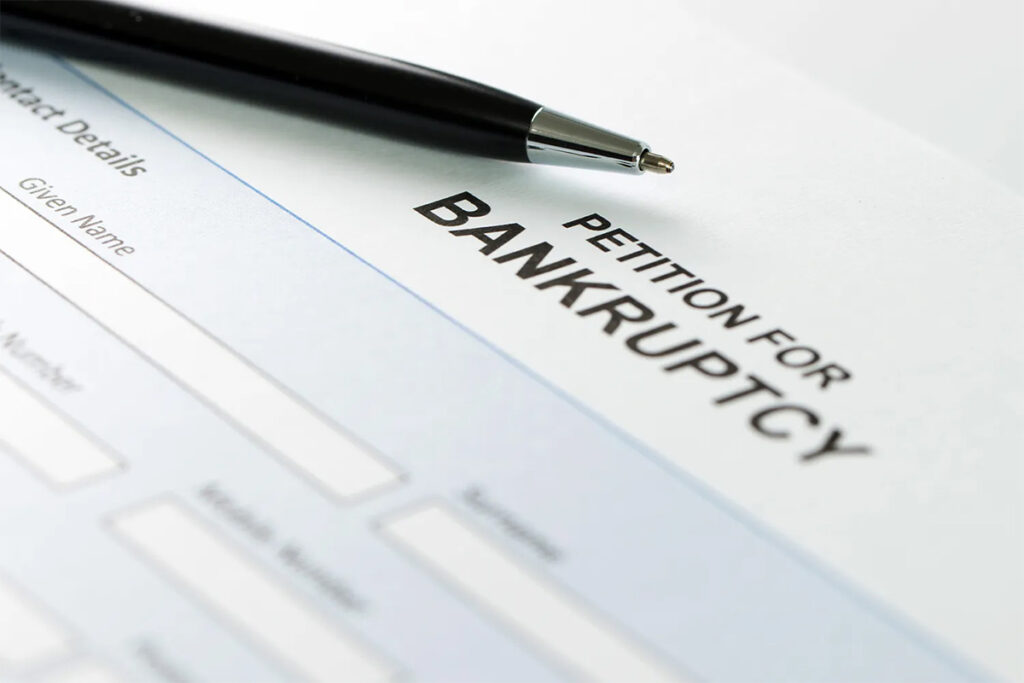Tax Consequences - Filing for Bankruptcy
In moments of financial distress, filing for bankruptcy often emerges as a daunting yet necessary step toward a fresh start. While it provides a pathway to alleviate overwhelming debts and regain financial stability, the decision to declare bankruptcy carries multifaceted implications, including its impact on tax obligations.
The tax implications for debts and assets can vary depending on the type of bankruptcy filed and the specific circumstances of the debtor. Here are some key tax considerations to keep in mind when filing for bankruptcy.
- Discharge of Tax Debts: In some cases, bankruptcy can lead to the discharge of certain tax debts. However, not all tax debts are eligible for discharge. Generally, income taxes that are more than three years old and meet certain other criteria can be discharged in bankruptcy. However, other types of taxes, such as payroll taxes and trust fund taxes, cannot be discharged.
- Exemption of Tax Issues: Bankruptcy can provide certain exemptions for tax issues. For example, the automatic stay that goes into effect upon filing for bankruptcy can temporarily suspend any collection actions by the IRS or other tax authorities.
- Impact on Future Tax Returns: The bankruptcy process may impact your future tax returns. It is necessary to file all required tax returns on time and accurately both before and during the bankruptcy proceedings. Failure to do so can result in complications and potential penalties.
- Treatment of Tax Refunds: Tax refunds may be considered part of the bankruptcy estate and subject to distribution to creditors. If you are expecting a tax refund, consult a bankruptcy lawyer to understand how it will be treated in your specific bankruptcy case.

Tax Debts & Bankruptcy Estate
Tax debts and their treatment in the context of a bankruptcy estate can vary depending on the type of bankruptcy filed and the specific circumstances of the debtor. In general, tax debts can be included in a bankruptcy estate and may be subject to discharge.
Whether tax debts can be discharged in bankruptcy depends on several factors. In a Chapter 7 bankruptcy case, the debtor must meet certain requirements for tax debt to be eligible for discharge.
These requirements include that the tax debt must be income-based, at least three years old, and the debtor must have filed a tax return for the related tax period at least two years prior to the bankruptcy filing.
The IRS must have assessed the tax at least 240 days prior to the bankruptcy filing.
Tax Refunds & Filing for Bankruptcy
When filing for bankruptcy, one of the key concerns for debtors is the treatment of their tax refunds. In general, tax refunds are considered to be a part of the debtor’s bankruptcy estate. This means that the bankruptcy trustee, who is responsible for overseeing ng the bankruptcy proceedings, may have the authority to seize the debtor’s tax refunds to pay off creditors.
The treatment of tax refunds can vary depending on the type of bankruptcy filing. In a Chapter 7 bankruptcy, where the debtor’s assets are liquidated to repay creditors, tax refunds may be subject to seizure by the trustee.
This is because any assets or property that are not exempted under bankruptcy laws may be used to satisfy the debtor’s outstanding debts. On the other hand, in a Chapter 13 bankruptcy, where the debtor follows a repayment plan to gradually pay off their debts, the treatment of tax refunds is different.
The debtor may be required to contribute a portion of their tax refunds towards their repayment plan. This is because the debtor’s disposable income, including tax refunds, is considered when creating a repayment plan. [1]

Treatment of Income Taxes in Bankruptcy Cases
In bankruptcy cases, the treatment of income taxes depends on the creation of the bankruptcy estate at the beginning of the proceedings. The bankruptcy estate encompasses all of the debtor’s legal and equitable interests in property, including income taxes owed.
Certain property may be exempted or excluded from the bankruptcy estate, meaning it cannot be seized or used to repay creditors. These exemptions vary depending on the bankruptcy laws of the jurisdiction in which the case is filed.
When it comes to income taxes, whether they are subject to seizure or exempted from the bankruptcy estate can depend on several factors. The type of bankruptcy filing plays a significant role.
- In a Chapter 7 bankruptcy, where assets are liquidated to repay debts, income taxes may be subject to seizure by the bankruptcy trustee. Any assets or property that is not exempted under bankruptcy laws can be used to satisfy the debtor's outstanding obligations.
- In contrast, a Chapter 13 bankruptcy involves a repayment plan where the debtor gradually pays off their debts. In this case, income taxes may still be included in the bankruptcy estate, but the debtor may be required to contribute a portion of their tax refunds toward the repayment plan.
This is because the debtor’s disposable income, which can include tax refunds, is considered when creating the repayment plan.
Federal Income Tax Return & Individual Tax Return in Bankruptcy Proceedings
While filing for bankruptcy does not relieve the debtor of their obligation to file income tax returns, it can affect the nature, timing, and extent of their tax obligations. When a debtor files for bankruptcy, their tax obligations become part of the bankruptcy estate. The bankruptcy estate includes all of the debtor’s legal and equitable interests in property, including any income taxes owed.
The timing of the bankruptcy filing can impact the tax obligations of the debtor. If a bankruptcy petition is filed before the individual tax return due date, the debtor may have the option to include their tax liabilities in the bankruptcy proceedings.
If the bankruptcy is filed after the tax return due date, the tax debts may not be dischargeable and must be paid outside of the bankruptcy process. The actions and financial activities during the bankruptcy case can create unanticipated tax consequences. For instance, if the trustee sells assets from the bankruptcy estate, the debtor may incur taxable gains or losses.

Social Security Benefits and Bankruptcy
There are special rules and considerations regarding treating Social Security benefits in bankruptcy cases.
Social Security benefits are generally not considered part of the bankruptcy estate. This means that these benefits are typically protected and cannot be used to pay off the individual’s debts. As a result, the debtor can usually continue to receive their Social Security benefits throughout the bankruptcy process.
There are exceptions to this rule where if the debtor receives additional funds along with their Social Security benefits, it may result in the loss of their protected status and become part of the bankruptcy estate. If the debtor owes spousal or child support, the court may order a portion of the Social Security benefits to be used for these obligations.
While Social Security benefits are usually exempt from the bankruptcy process, they can still impact the debtor’s overall financial situation. If the debtor has other sources of income in addition to their Social Security benefits, they may need to include that income when determining their eligibility for certain bankruptcy relief options.
Contact the experienced bankruptcy attorneys at Richard West’s Law Office to learn more about the tax consequences of filing for bankruptcy.
FAQs
The requirement to file a tax return for a bankruptcy estate in tax year 2022 applies when gross income reaches or exceeds $12,950, which is equivalent to the standard deduction for married individuals filing a separate return and is typically adjusted on an annual basis.
Although a bankruptcy filing does not exempt the debtor from their regular obligation to file income tax returns, it can significantly alter the nature, timing, and extent of their tax payment obligations.
The term “debtor in possession” refers to a debtor who retains possession and control of their assets while going through a specific process.
Source:
[1] Declaring Bankruptcy | Internal Revenue Service. (n.d.). https://www.irs.gov/businesses/small-businesses-self-employed/declaring-bankruptcy




